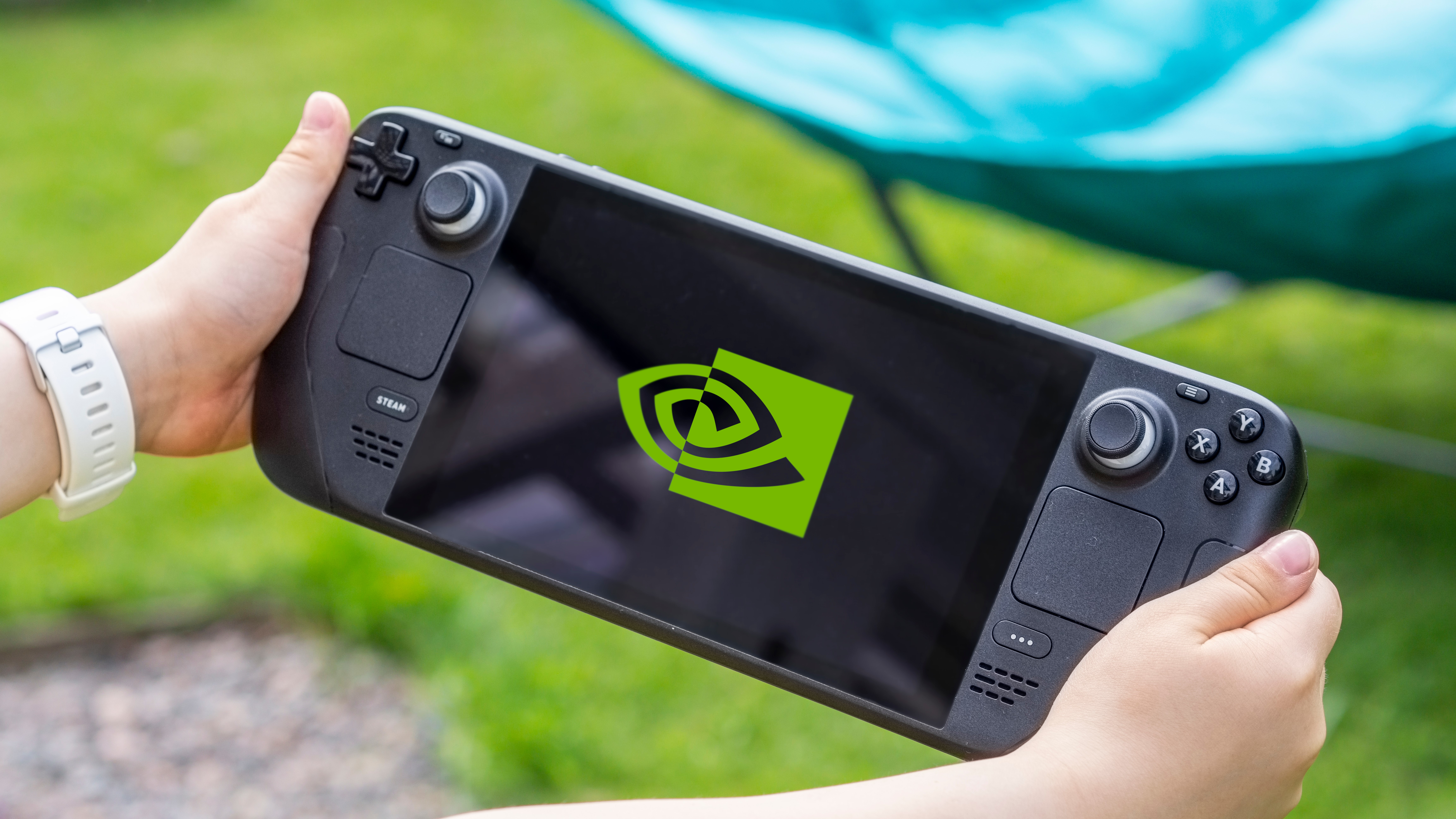
- Nvidia will add a native GeForce Now app to the Steam Deck
- Confirmed to be 'later this year' with greater VR headset support
- Ultimate members will have access to ray tracing, a 4K resolution, and DLSS 3 on the cloud
Nvidia's GeForce Now has been available to Steam Deck users via a script available on its download page, but Team Green will be launching a native app for Valve's handheld later this year.
Announced in a blog post, will expand its support on numerous devices such as the Apple Vision Pro, Meta Quest 3, Meta Quest 3S, and notably the Steam Deck, providing access to AAA games in greater graphical fidelity and performance.
Steam Deck owners will have access to ray tracing at a 4K resolution when hooked up to a TV achieving 60 frames per second, thanks to streaming using powerful gaming PCs in the cloud - Steam Deck OLED users will also benefit from HDR10 support across multiple games, along with DLSS 3 for high and stable frame rates and Nvidia Reflex for lower latency (when using the Ultimate membership).
GeForce Now gives you access to over 2,100 games which continues to expand with new additions such as the upcoming Doom: The Dark Ages, so if certain AAA titles can't quite cut it on the Steam Deck (notably games like Cyberpunk 2077), Nvidia's streaming service is your best bet.

Is this a game changer for the Steam Deck?
I've never taken cloud gaming services seriously as I've always opted to run my games locally, along with not wanting to depend on a good internet connection, but this is a positive move from Nvidia I can't ignore. Considering the limitations of Valve's Steam Deck in terms of its processing power for games, there's only so much that can be done by users to balance great graphics and performance (compared to newer handhelds like the Asus ROG Ally X and Lenovo Legion Go).
In this case, Team Green's GeForce Now is the solution for both handheld and docked circumstances - using an Ultimate membership guarantees great performance using ray tracing at higher resolutions. While this can also be beneficial in the case of other handheld gaming PCs, this will prove to be far more impactful for the Steam Deck performance-wise (mind you, in a non-native experience), and the fact that it will be fully supported on SteamOS.







